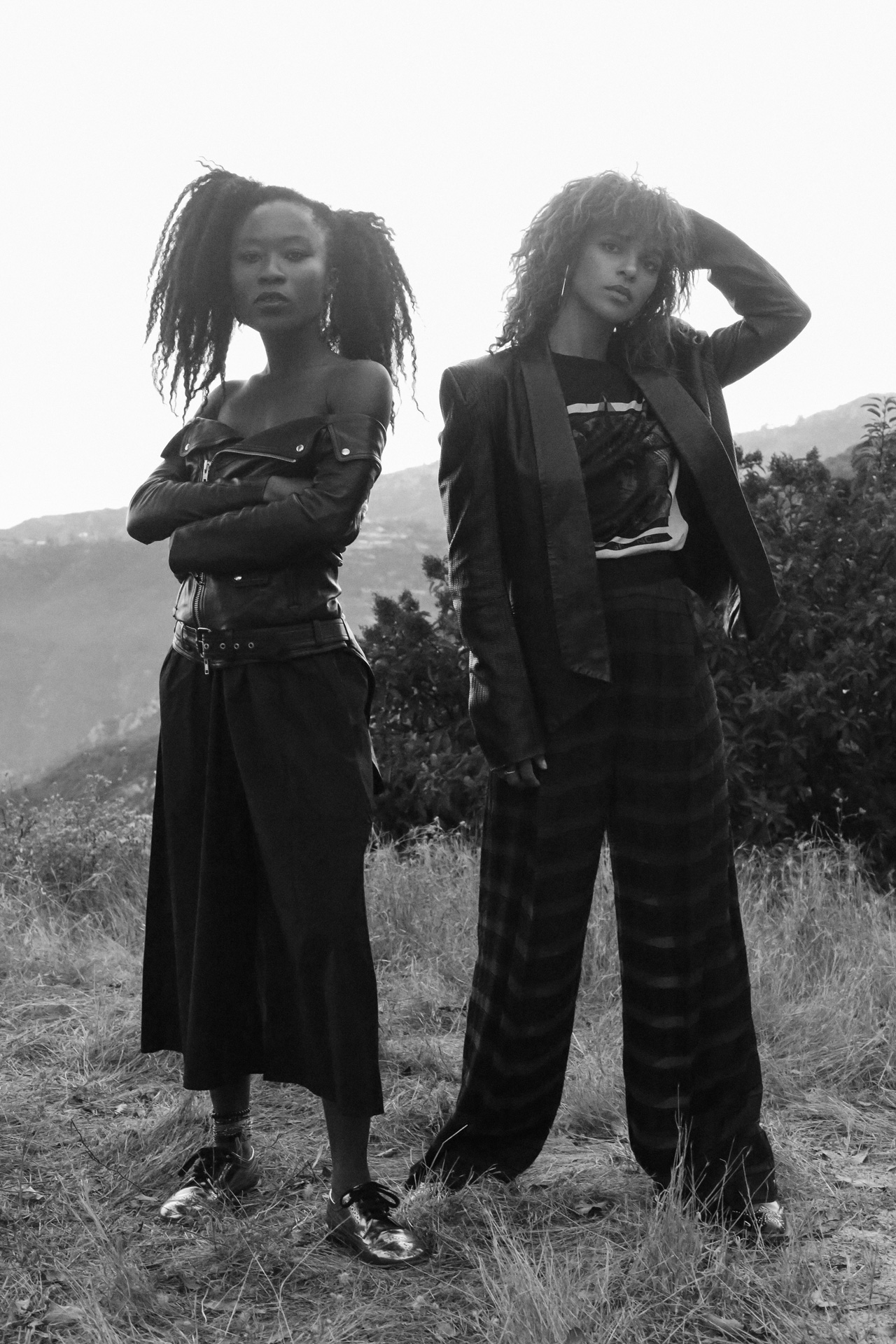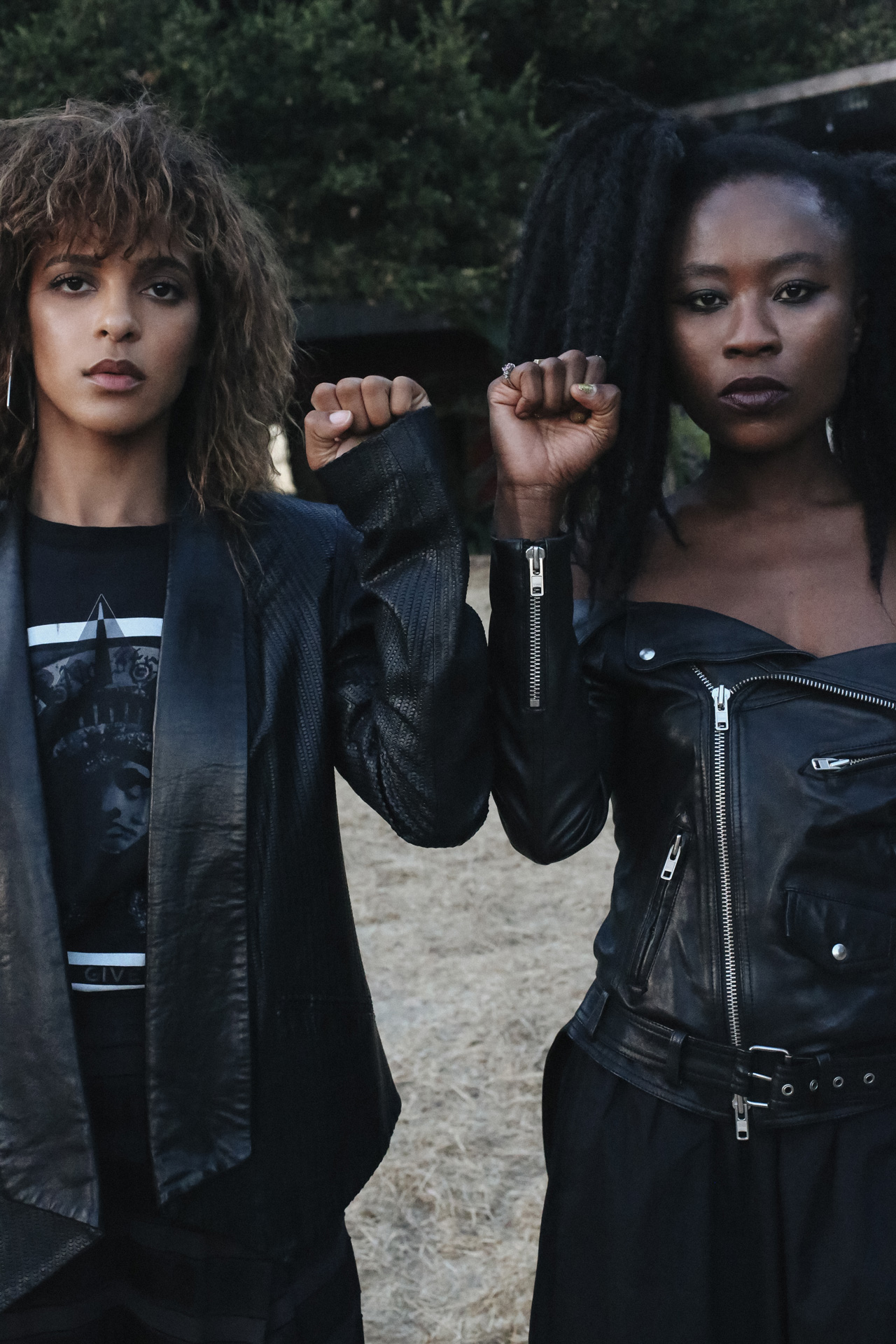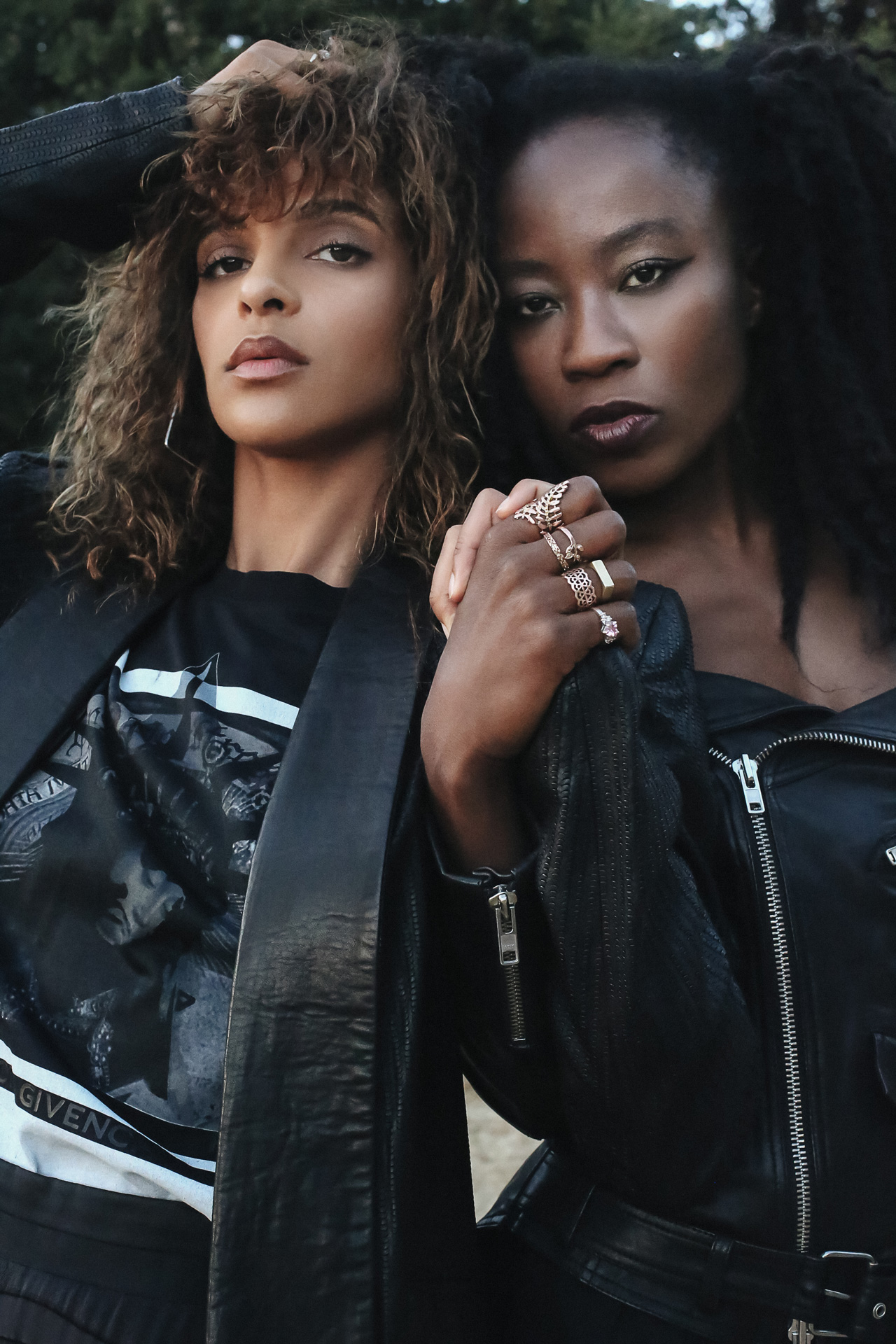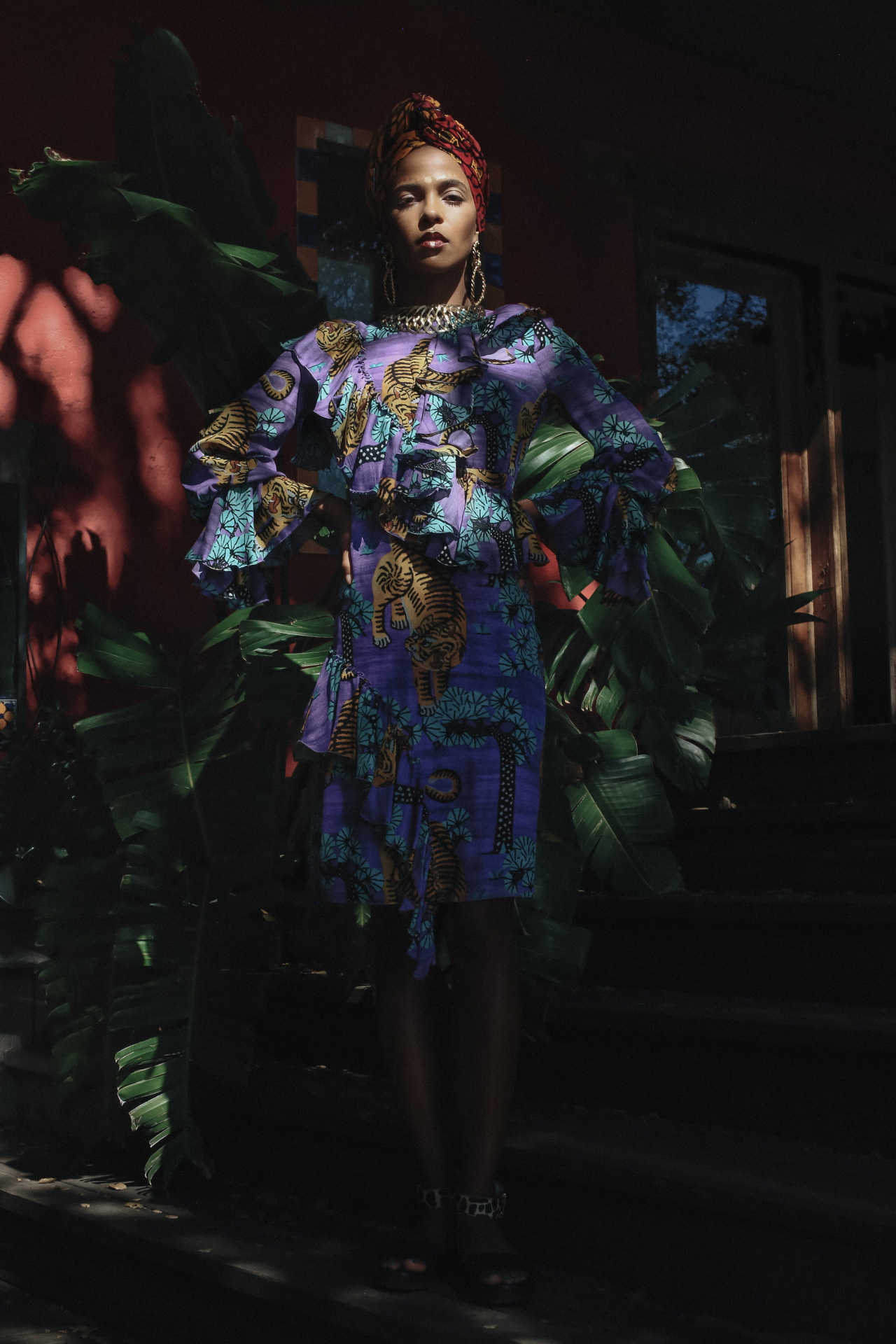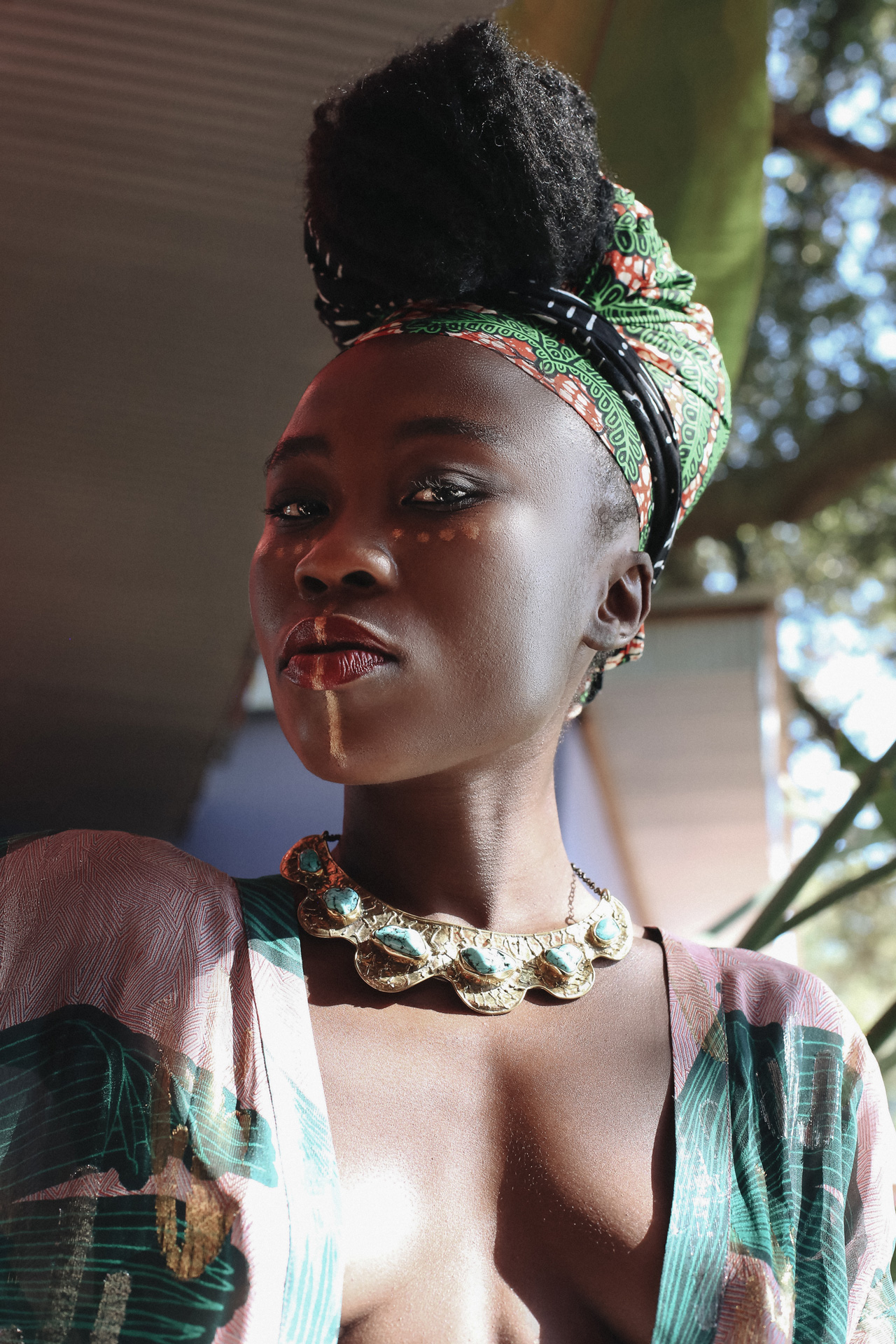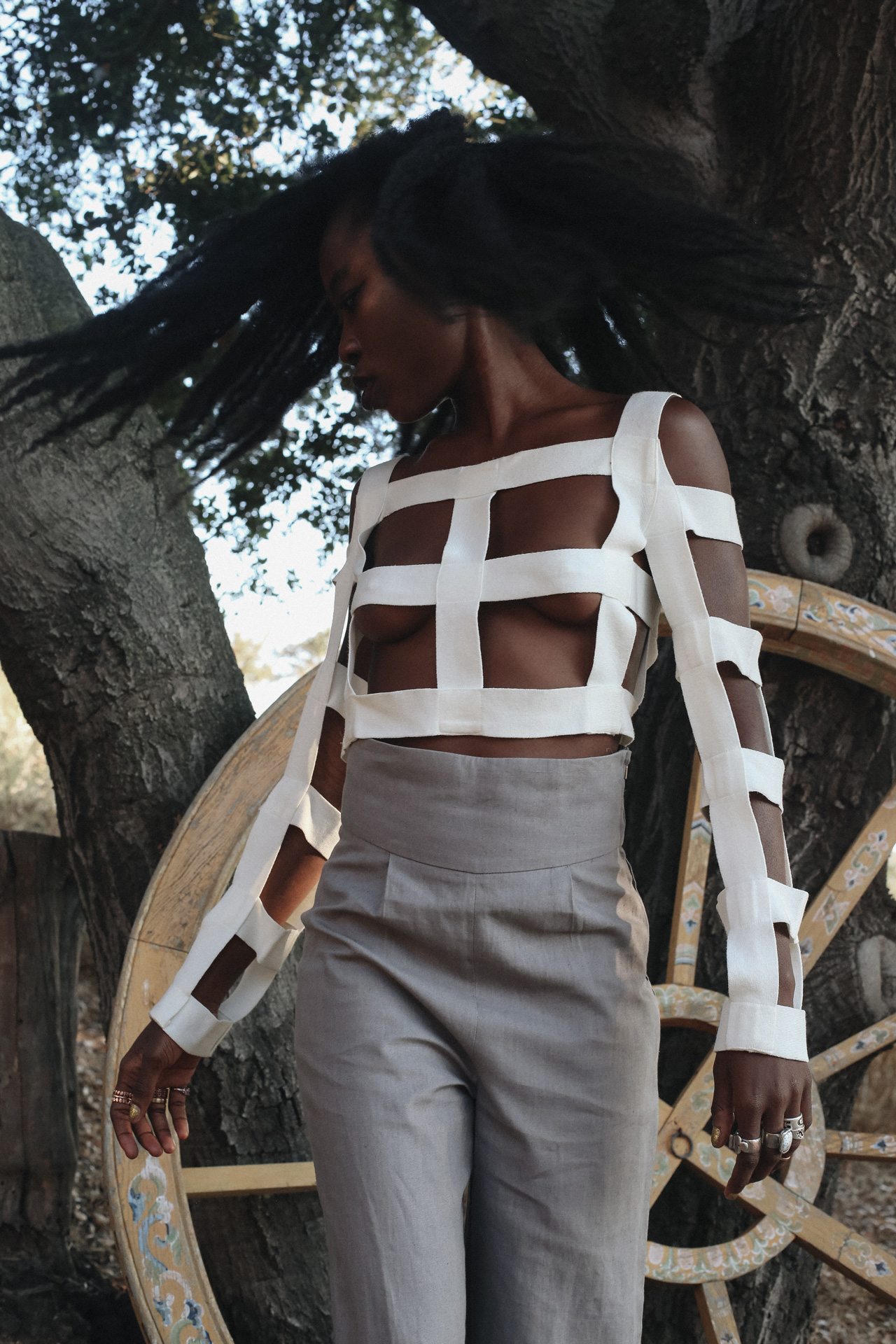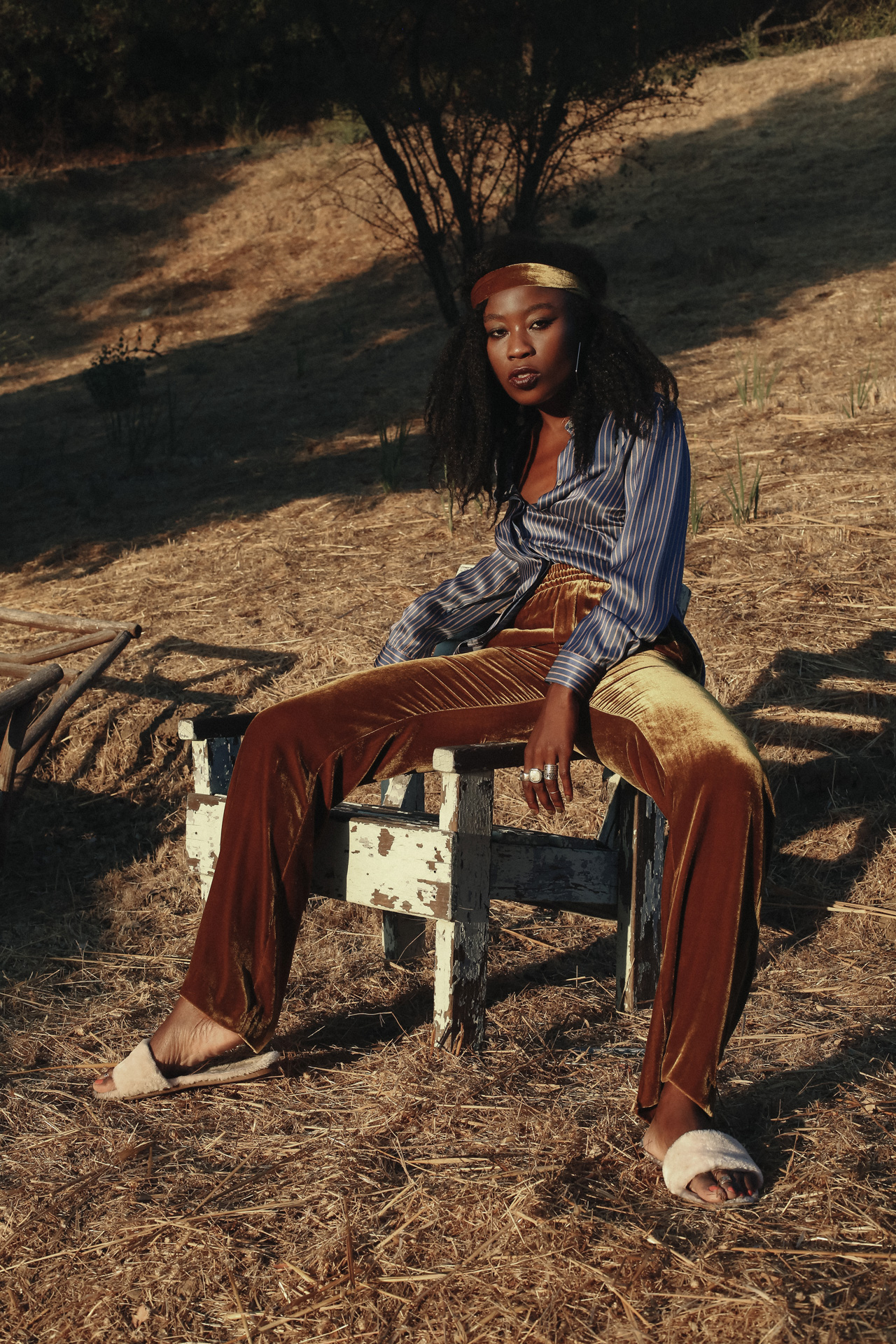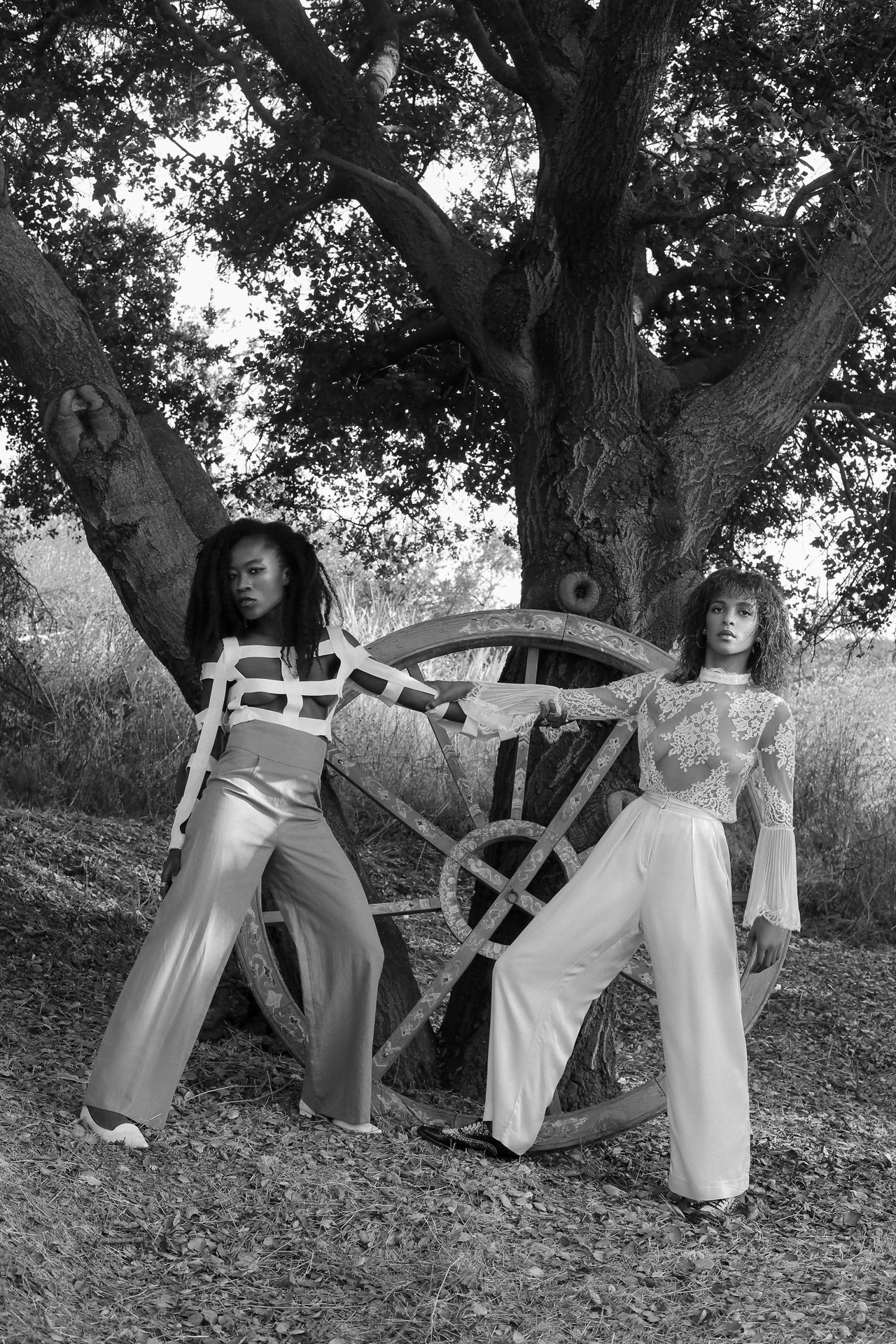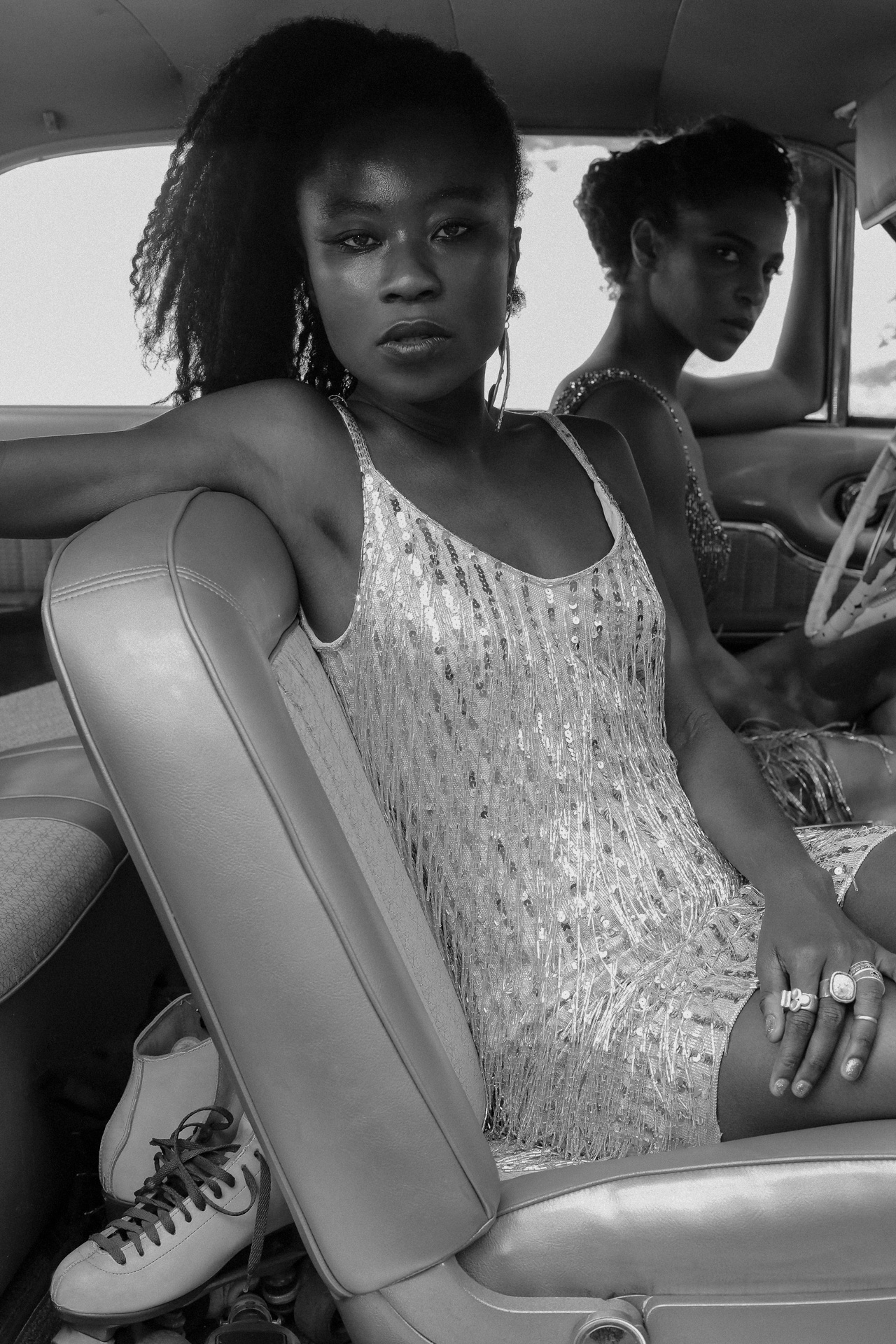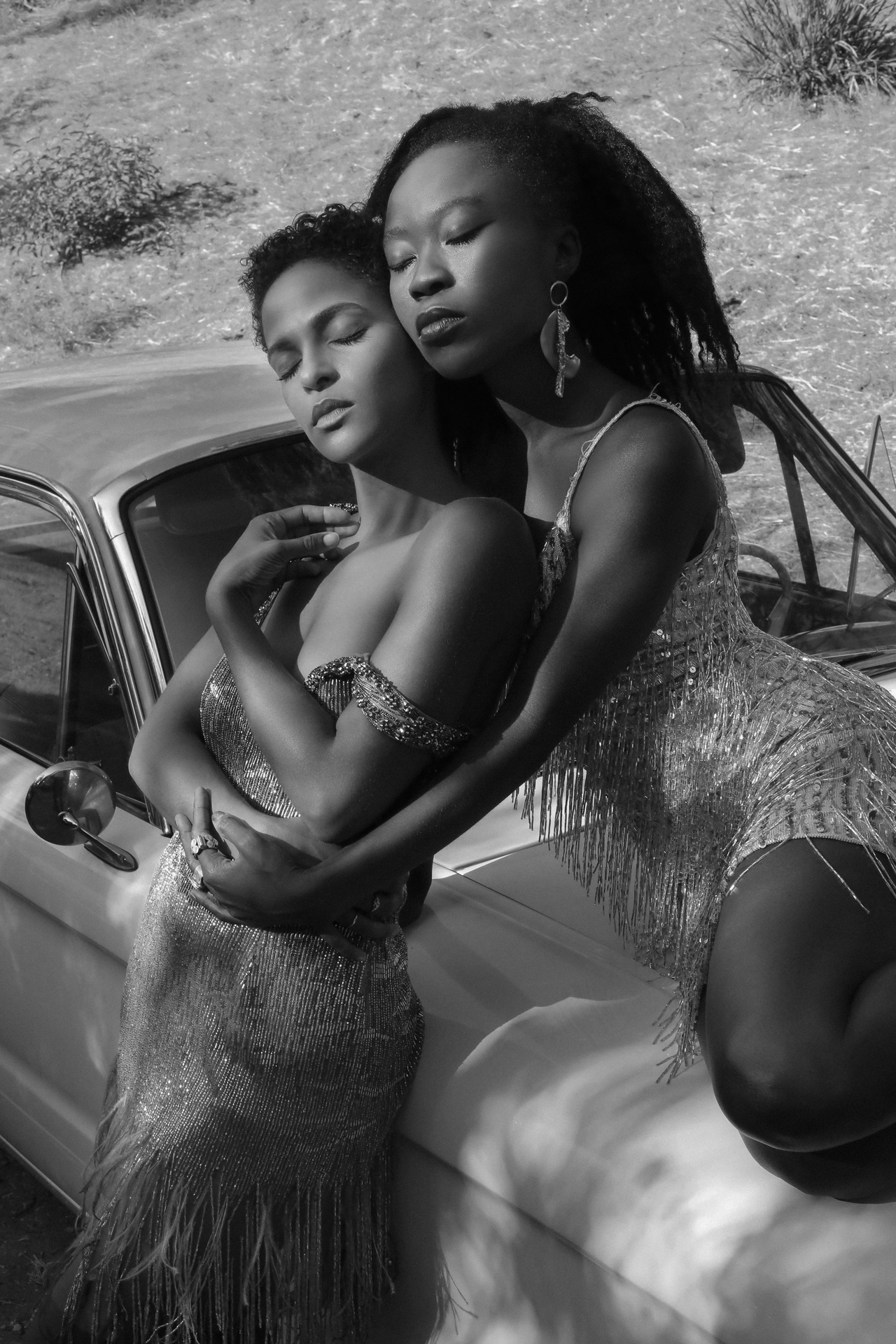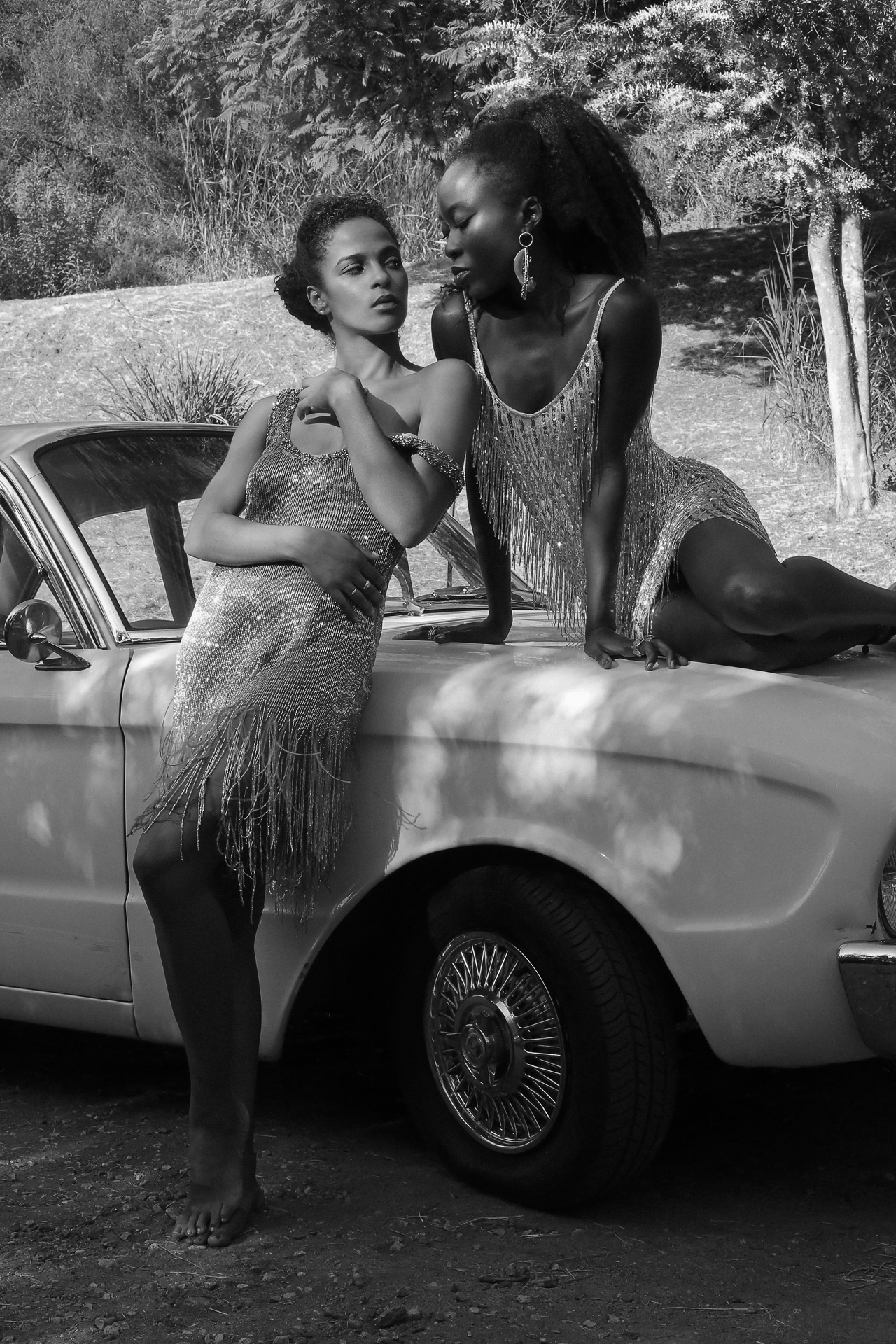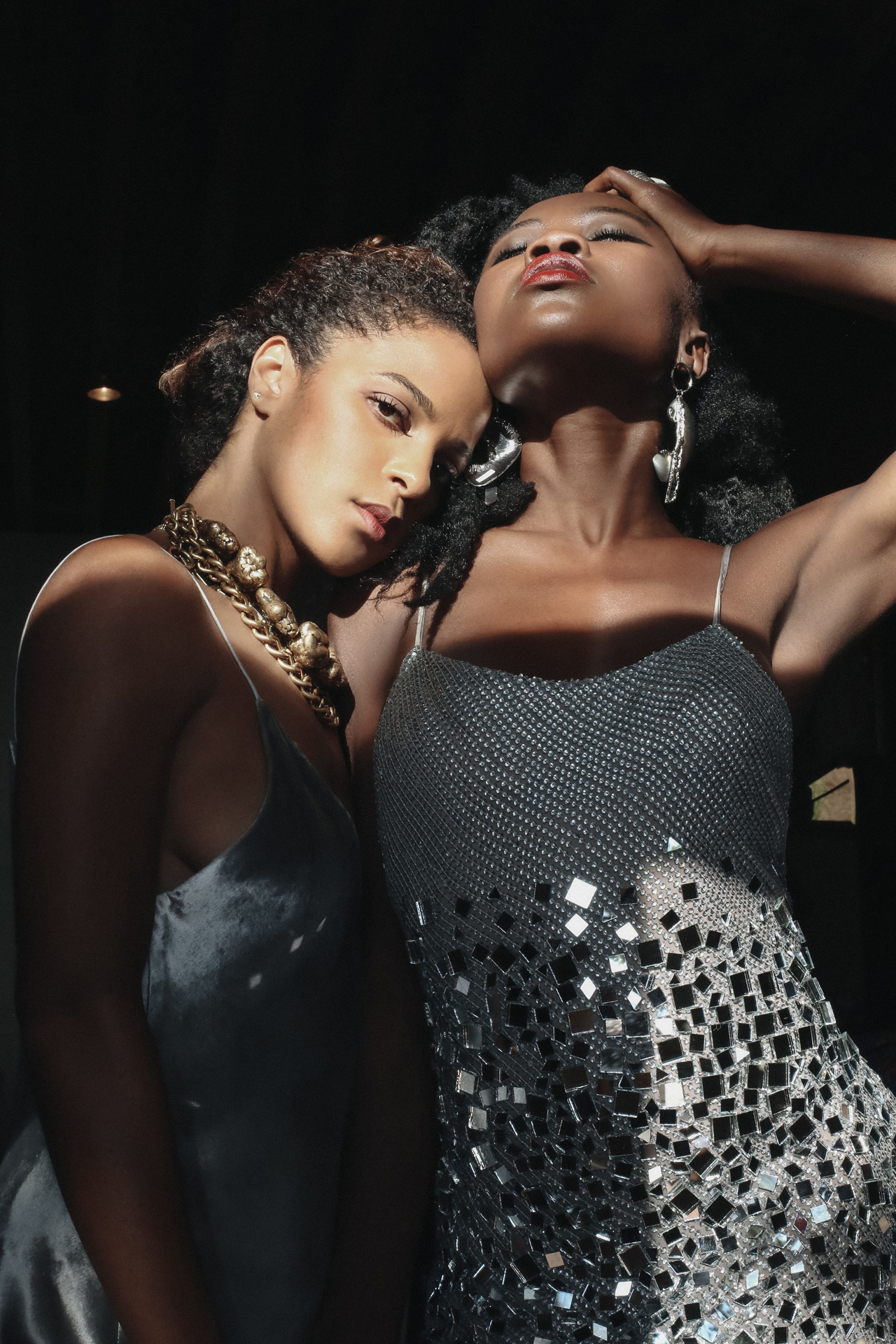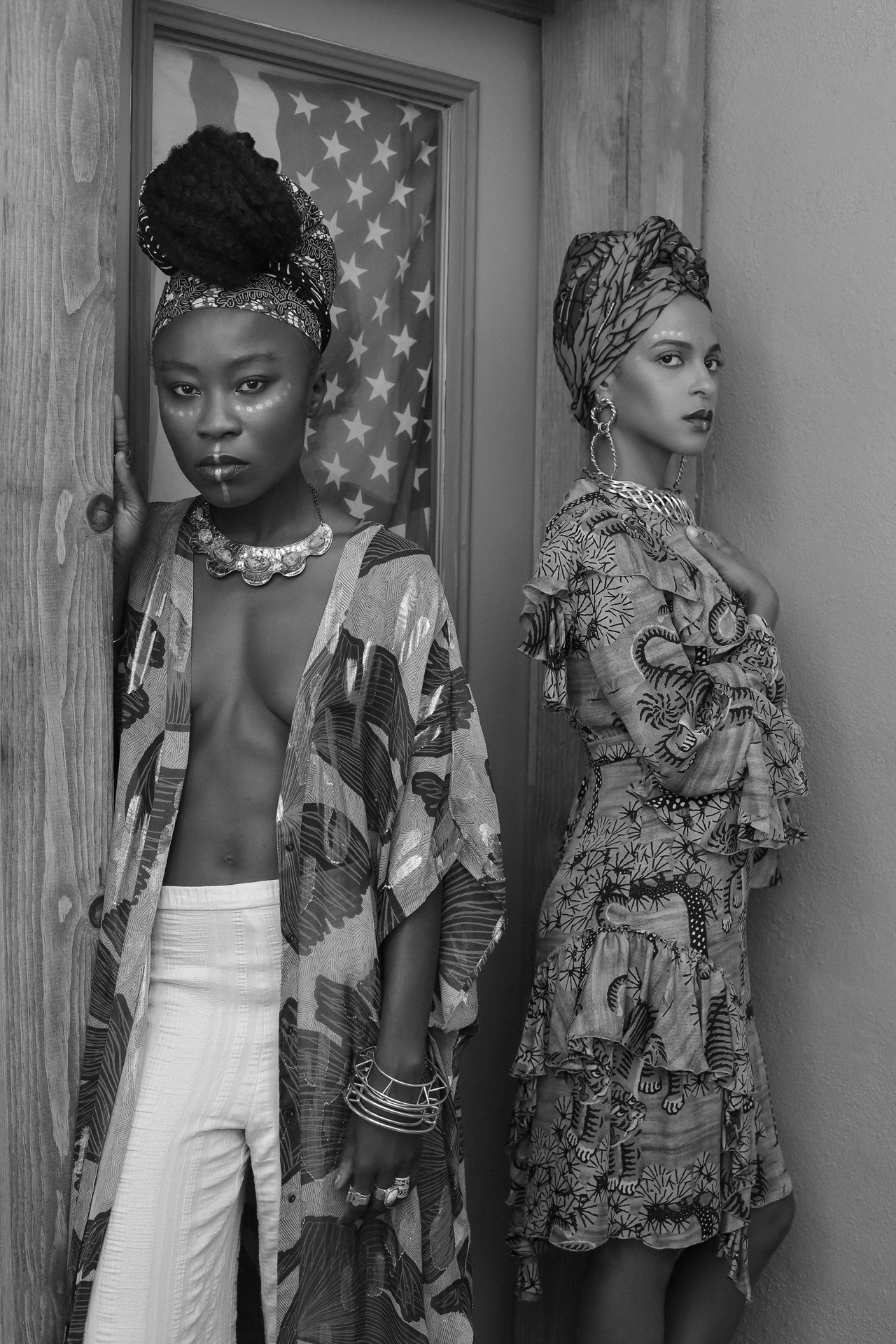Everything
David-Simon Dayan (ICON): How are you both feeling?
Nana Ghana (NG): I am doing good. Definitely feeling the vibrational and emotional shift in the atmosphere of the world. I am feeling charged, activated, hopeful and holding space for change.
Megalyn Echikunwoke (ME): I am as good as can be expected considering the world is on fire. It’s an exciting time to be alive.
ICON: What has the past few months been like for both of you as you’ve protested throughout the city of Los Angeles?
ME: For me it has been beautiful. It’s been really fascinating to watch the movement really grow from my first day out on the street after George Floyd’s death. In May, there were under 200 people protesting in downtown Los Angeles. But it went from 0-60 in a matter of days. I live less than a mile from the Hall of Justice and all those official buildings and the sounds of helicopters hovering overhead became the soundtrack to my life for a week straight. I wondered if this was what it felt like to be in a war zone. But it wasn’t scary. It was electrifying. It has quieted down now but being on the street in solidarity with all those people as the protest grew and grew to 50k at one point felt really special and strange and awkward. Because we are also in a pandemic but it was a ‘ride or die’ spirit which I live for.
NG: That period in LA was very intense and numbing. I am full of rage and enlightenment. Race is a topic that all Black people live with every day. I feel hopeful that the fever pitch of this energy sparked around the world will lead us to equality. We have to erase racism from the source. That is people coming together and understanding the systematic oppression of Blacks in America and across the diasporas.
“We are in a place where more people’s eyes are opening and that is a good thing.”
ICON: Nana, what inspired you to make your short film Electing which follows Anika (played by Megalyn) as she mourns her brother – who she lost at the hand of a police officer – while coping with the further loss of hope after the 2016 election?
NG: I started thinking about my next film while at the Cannes Film Festival 2016. I had spent that summer in France and I was out one night when I saw the news break about the killing of Alton Sterling. Seeing that news break brought all these contained feelings of grief and anger for Trayvon Martin, Freddie Gray, Micheal Brown Walter Scott, Eric Garner and Sandra Bland. I was pissed off that there had been no justice for these humans.
“I was in tears watching the mother of Alton speak about her son and the impact of his death on his family. I felt her pain, I wanted to hold her and tell her that I loved her. I wanted to create a film that humanised the personal grief of a Black woman dealing with the death of a family member caused by police brutality.”
I wanted to let the audience feel the injustice from the point of view of a mother, a daughter, a sister. Then Trump got elected and I thought, “holy shit, this is the end.”
ICON: Mega, could you share your experience portraying Anika, a character living in a system that has plagued her with repeated trauma?
ME: One of the things that drew me to this project was a need to express the trauma that I personally have experienced, and to portray a modern Black woman who is dealing with these kinds of traumas day-in-and-day-out and the effect that it has on the psyche. I wanted to shine a light on the things that the Black community and Black women disproportionately deal with constantly and they do so very rarely with support. Up until recently, I honestly don’t think most people even acknowledged the pain that the Black community has been going through for decades.
ICON: When Trayvon Martin was killed in 2012, it shook the nation. When Eric Garner was killed nearly two years later, the wound was exacerbated and reform was requested. Ahmaud Arbery, George Floyd and Breonna Taylor’s deaths have now changed that request from reform to defunding the police departments. Megalyn, you work with an organisation called Reform LA Jails. Could you share how you became involved?
ME: Reform LA Jails was born out of a desperate need for some kind of alternative to incarceration. Mental illness is not a crime. Homelessness is not a crime. Half the people in lock up at Twin Towers Correctional Facility here in LA have not been convicted or found guilty of any crime; they are just not able to post bail.
“Why is being poor a crime?”
I think California, and especially LA county, constantly criminalises people for these things and call it justice. Racist policing practices and sentencing laws are being used to incarcerate Black and Brown people at staggering rates in the name of safety but our communities are not safer. It has led to the devastation of our communities. We therefore need to work towards care, not cages. Right now most people who need help are getting cages not care. For instance over half the men in Twin Towers Correctional – and 70 percent of the women – suffer from some sort of chronic mental illness. LA county jail was able to help stop the building of a new billion-dollar psychiatric jail that was scheduled to start building this year. That is major. But the fact that we are investing in jails that are meant to incarcerate sick people instead of investing in actual care for those people tells you a lot about where our priorities are as a nation. It’s not just LA that needs this type or reform, it’s country wide. Hopefully initiatives like Reform LA Jails will be a model for other counties nationwide. Instead of building more jails, we demand investment into the things we really need and that actually keep communities safe like access to education, healthcare, jobs, etc.
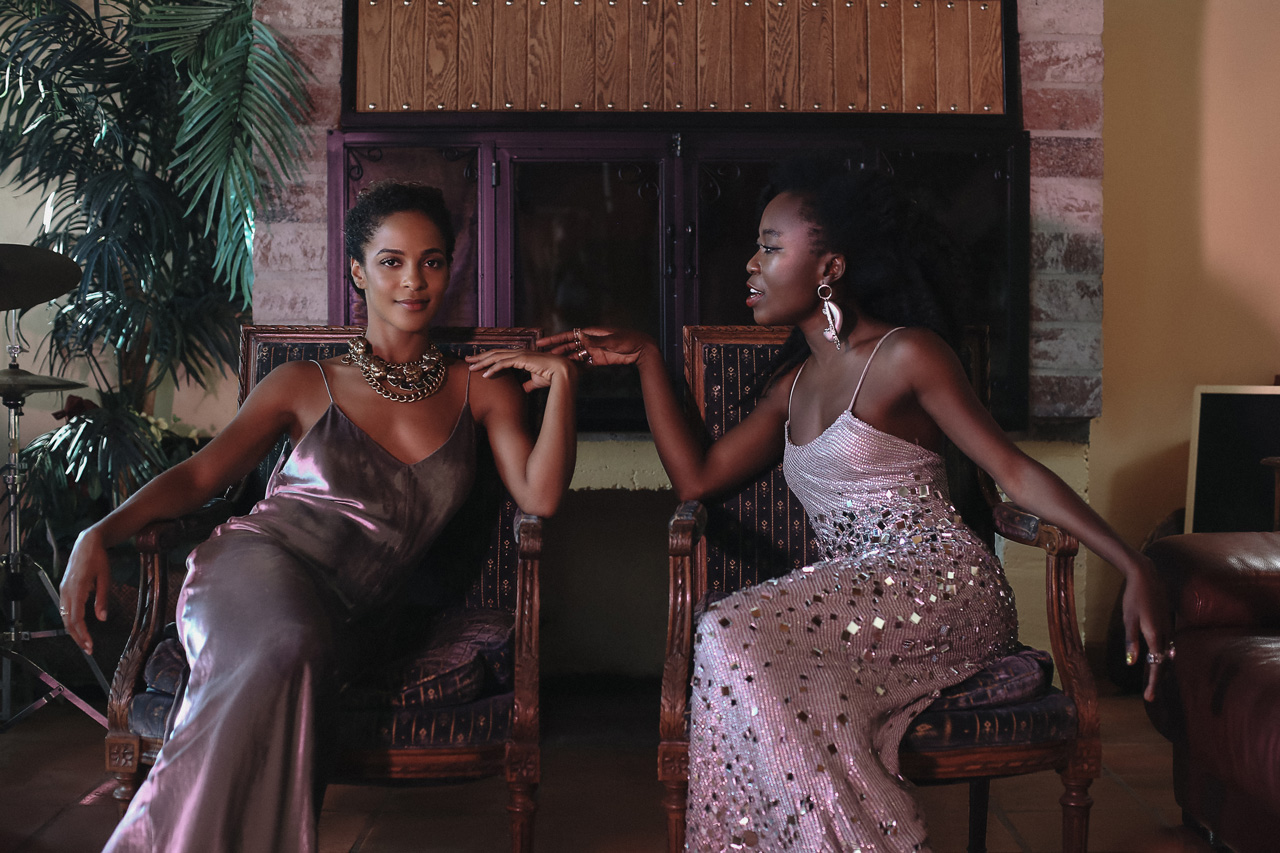
ICON: The call to defund the police might – at first glance – read as shocking or impossibly complex…
ME: There is a lot of alarm surrounding the words used here. But if you ask yourself what the police are supposed to do and what they actually do, there is a vast difference. Why are they the first and only option for moments where they have no training and no business being present? Why does so much of the city’s budget go to police a community that actually just needs jobs and health care and access to education? I have a brother that suffers from mental illness. He has often needed professional help to work through episodes and lapses in his grasp of reality. Why are the police the only recourse a person has in this situation? Cops are not trained mental health experts. Cops are barely trained at all. In fact it’s easier to become a cop than it is to become a hairdresser. And yet cops have the ability to take your life and/or your rights away from you with impunity. Which is why so many of these situations end fatally. And it is terrifying. So when we say defund the police, it’s not to say get rid of safety. No one wants to be less safe obviously so I don’t know why people assume that. It’s about asking ourselves why militarised, over funded, undertrained police officers are in charge of mediating so many aspects of our lives that they have no business being a part of. What happens if all of that money went into actually keeping us safer?
Photography & Interview: David-Simon Dayan for ICON
Stylist: McCall Alexandra
Hair and Makeup: Samantha Barrows
